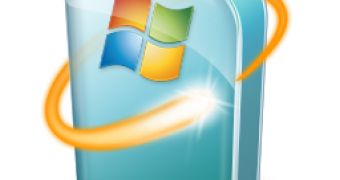In addition to delivering standalone copies of Internet Explorer 8 Release Candidate 1, Microsoft also planned to push automatic upgrades to IE8 RC1 to all users running Beta 1 and Beta 2 builds of the browser on top of Windows Vista RTM and SP1, Windows XP SP3 and earlier, Windows Server 2008 and Windows Sever 2003. In this manner, the software giant is looking to ensure that the vast majority of its current IE8 installed base will transition automatically to the near-final variant of the browser. However, Microsoft will not offer IE8 RC1 upgrades to users running Windows7 Beta 7000, and the post-Beta 2 but pre-RC IE8 component.
With the Redmond company having offered IE8 RC1 in no less than 25 standalone localized versions, IE8 Beta 1 and Beta 2 users will also receive the bits via Windows update in just as many languages.
“All IE8 Beta 1 and Beta 2 users will be offered IE8 RC1 via Windows Update in 25 languages. For Windows XP and Windows Server 2003, the IE language that gets offered via Windows Update will match the base OS language. For Windows Vista and Windows Server 2008, the IE language that gets offered via Windows Update will match the Active Language that the user selected for their account,” Jane Maliouta, IE program manager, revealed.
While Microsoft has striven to make the IE8 RC1 upgrade experience and process as seamless as possible, users running Windows XP SP3 should handle moving to the Release Candidate build of Internet Explorer 8 with care. In the specific scenario in which IE8 Beta 1 or Beta 2 have been installed ahead of the integration of Service Pack 3, users should not allow IE8 RC1 to be served and installed via Windows Updates.
In fact, what they should do is uninstall SP3, then uninstall IE8 Beta, and only after this install SP3 again and subsequently deploy IE8 RC1 through the channel of their choice. Otherwise, the deployment of IE8 RC1 will lock both Internet Explorer 8 and Service Pack 3 for Windows XP in place. Users will no longer be able to remove either SP3 or Internet Explorer 8. They will be permitted to upgrade to the RTM build of IE8, but will not find it possible to remove that version.
“Internet Explorer RC1 will be offered to all Windows XP and Windows Server 2003 systems that have IE8 Beta version installed and have Automatic Updates turned on in 25 languages. A prompt will appear in the notification area of the Windows taskbar when IE8 RC1 is ready for installation. The language version of IE8 RC1 offered is based on your Windows Operating System Language version. For example, if your computer is running a Chinese Simplified or German version of Windows, you will be offered IE8 RC1 in Chinese Simplified or German, respectively. For any other Windows languages outside of the 25 that IE8 RC1 is available in, Internet Explorer 8 will be offered to you in English. Again, this only applies to those systems that have IE8 Beta versions installed,” Maliouta added.

 14 DAY TRIAL //
14 DAY TRIAL //